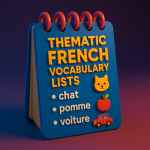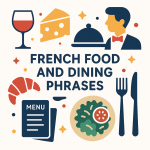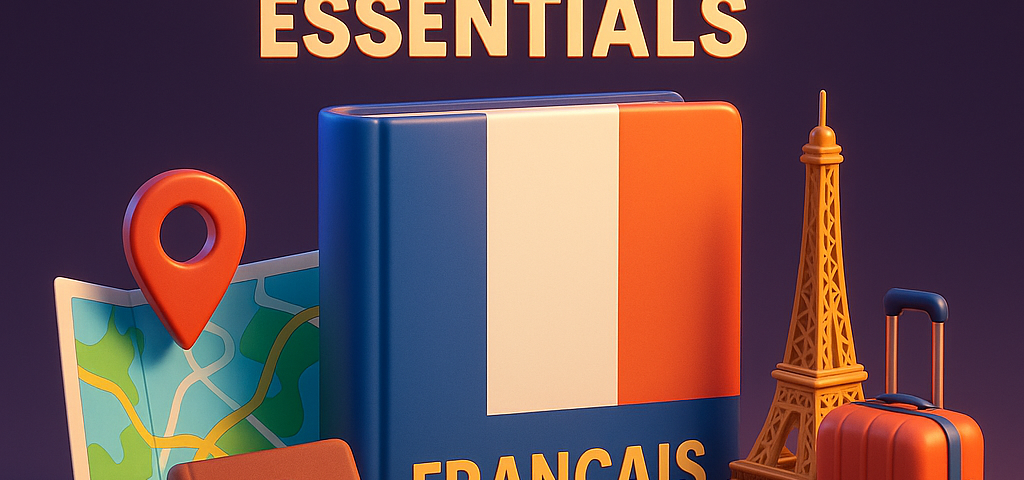
Thematic French vocabulary lists
June 12, 2025
Mastering French Culinary Vocabulary: Essential Phrases for Food Enthusiasts
June 12, 2025In today’s globalized world, equipping young learners with essential French travel vocabulary is crucial for effective communication while abroad. This specialized vocabulary not only aids in navigating unfamiliar environments but also enhances cultural appreciation, making travel experiences more enriching. For parents and teachers, understanding how to integrate these vocabulary essentials into learning modules is vital. LearnFrenchTutor (LFT) strives to empower young French students through a practical and streamlined approach, making the learning process enjoyable and effective.
Understanding Travel Contexts
Recognizing the different contexts in which students might use travel vocabulary is fundamental. Travel settings can vary significantly—from airports to hotels, and even local markets. By categorizing vocabulary based on these contexts, learners can create meaningful associations that facilitate retention.
- Airports: Phrases related to check-in, boarding, and luggage.
- Hotels: Common terms for booking, amenities, and services.
- Markets: Vocabulary for bargaining, food items, and local specialties.
Key Phrases for Young Travelers
Teaching key phrases tailored for young travelers can significantly enhance their confidence. These phrases should not only cover daily necessities but also allow for cultural engagement with locals. Simple, context-specific phrases can make young learners feel empowered and connected to their surroundings.
- “Où sont les toilettes?” (Where are the restrooms?)
- “Je voudrais une glace, s’il vous plaît” (I would like an ice cream, please).
- “C’est combien?” (How much is it?).
The Role of Cultural Nuances in Vocabulary Acquisition
Understanding cultural contexts is essential when learning travel vocabulary. Vocabulary acquisition is intertwined with cultural nuances that can shift meaning. Young learners benefit from exposure to cultural elements, as this knowledge helps them use the vocabulary naturally and respectfully.
- Expressions that reflect local etiquette, such as polite greetings.
- Words that have unique cultural significance, like “baguette” or “croissant”.
- Understanding social norms when engaging with locals.
Engaging Learning Techniques
Engagement is key for young learners. Incorporating interactive methods can enhance vocabulary retention and make learning enjoyable. Using games, role-playing, and mobile applications can facilitate smooth learning experiences while also integrating travel vocabulary effortlessly.
- Using flashcards for visual memory reinforcement.
- Conducting mock travel scenarios for practical application.
- Employing mobile apps that focus on travel-related vocabulary.
Encouraging Real-World Usage
Encouraging practical usage of French travel vocabulary through simulations or actual travel contexts can significantly boost confidence and fluency. Young learners become more proficient and adaptable when they practice their vocabulary in real-world scenarios.
- Organizing field trips to local French restaurants.
- Creating travel journals documenting vocabulary used during travels.
- Facilitating online pen pals or conversation exchanges with French-speaking peers.
In wrapping up, optimizing French travel vocabulary is a strategic necessity for young learners. By focusing on context, key phrases, cultural nuances, engaging learning techniques, and real-world application, parents and educators can foster meaningful language acquisition. We invite you to harness these insights with LearnFrenchTutor (LFT)—Quick French Tutor for French Students—to enrich the learning journey of aspiring young travelers.

